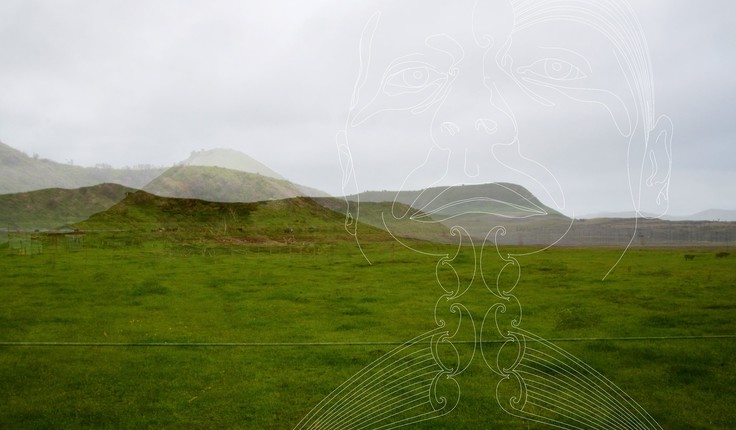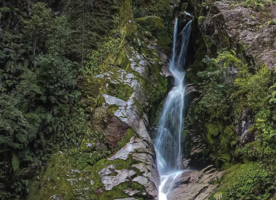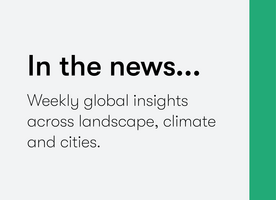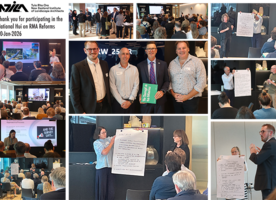News
A time to think of Papatūānuku
Posted 22 04 2020
in News

Na Te Tau-a-Nuku-a-Nuku
Ko Dr Diane Menzies (Ngāti Rongowhakaata, Te Aitanga o Mahāki) i tuhi
As Aotearoa New Zealand moves to Level 3 of Covid19 lockdown, there is time to think about our relationship with te taiao (the environment) and whenua (land and landscape). You will have noticed the effects of COVID19 lockdown in the cities. The quietness without many people and traffic on the streets, less air pollution, the stillness in the evenings is a marked change. There are benefits that we can see with new eyes, hear and smell. But what if we really looked with new eyes? What if we considered the landscape not as a visual and physical resource but as Papatūānuku – the ‘earth mother’, a living entity, a person, the sea as full of ‘beating hearts,’ rather than a relatively unresponsive object out there? What difference would that make to our thinking, planning, design and management proposals?
What am I talking about?
Take a step back to look at some recent legislation, the Te Urewera Act 2014 and Te Awa Tupua (Whanganui River Claims Settlement) Act 2017. Both pieces of legislation recognise the land and water they refer to as living entities: Te Urewera Act provides for the land as a person; and, in the case of Te Awa Tupua Act 2017, the Whanganui river as a living entity. This was not needed by Tūhoe because they always understood that Te Urewera was a living entity, as did Whanganui river iwi/hapū of their river. But it enabled the Crown to settle previous land confiscations and Treaty grievances, and the two Acts have attracted much international attention as recognition of a mountain and a river as a person, a living entity, seemingly has not been heard of in legislation in western countries. This though is not a new idea for Indigenous peoples. Many have held this knowledge for millennia. That this remains out of discussion and even mainstream dialogue for our profession here in Aotearoa New Zealand seems a special opportunity for us. There is much writing we can google at home in our bubbles to start learning about this. Te Taute Taiepa (Tūhoe), a manager with the Department of Conservation, said in an interview with Menzies earlier this year:
“…there’s a bigger acceptance that the environment is changing, climate change is knocking on the doorstep and we see that the summers are getting way, way worse so there’s an urgency there for all humanity to stop and check ourselves and check our behaviours towards Papatūānuku.
… Absolutely the mother earth is, and will always be a living entity … for us in Aotearoa [ we need to] proactively change our habits so as to not kill mother earth, our Papatūānuku …we need to change our habits because her mauri is sick, and we see that, so … we interact with Papatūānuku like she’s our mother, we’re reliant on her as she is reliant on us, so she is a living entity…”
Better understanding of Papatūānuku as a living entity would enable built environment professions- planners, designers and researchers to return to the places re-peopled after the lockdown with the start of different perceptions. Would you give greater attention to listening to Papatūānuku, to identify effects better? How would this change your work, thinking about landscape as a person? And in turn would you design and plan within cultural landscapes with greater empathy?
Diane Menzies is a Landscape Architect and cultural advocate, and a member of Te Tau-a-Nuku (The Māori Landscape Architects Collective) and is a member of Nga Aho; the Collective of Māori Design Professionals of which Te Tau-a-Nuku is a part.
12 Feb
NZILA lodges submission on Planning Bill and Natural Environment Bill

There’s still time to have your say
Tuia Pito Ora New Zealand Institute of Landscape Architects has lodged its formal submission on the Planning Bill and Natural …
09 Feb
Weekly international landscape, climate and urban design update

Monday 9 February
This is your weekly international snapshot of what’s happening across landscape architecture, climate adaptation and urban design. Drawing on credible …
02 Feb
RMA Reform submission update

Call for feedback and images
Submission framework The Environmental Legislation Working Group thanks all members who made the effort to join us at the national …
Events calendar
Full 2026 calendar